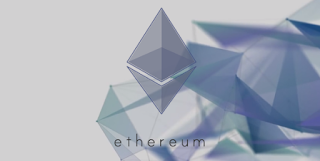Before you possibly can recognize ethereum, it allows to first recognize the internet.
Today, our private data, passwords and monetary news are all principally saved on different people's computers – in clouds and servers owned by corporations like Amazon, Facebook or Google. Even this CoinDesk article is saved on a server controlled by a manufacturer that fees to hang this guide ought to it's referred to as upon.
This setup has just a few conveniences, as these corporations set up groups of experts to assist shop and safe this data, and take away the prices that include web web hosting and uptime.
But with this convenience, there can also be vulnerability. As we have learned, a hacker or a government can obtain unwelcome entry in your assistance with out your knowledge, by influencing or attacking a third-party provider – meaning they'll steal, leak or swap foremost information.
Brian Behlendorf, writer of the Apache Web Server, has long gone up to now as to label this centralized layout the "original sin" of the Internet. Some like Behlendorf argue the Internet was all the time supposed to be decentralized, and a splintered stream has sprung up round utilizing new tools, adding blockchain technology, to assist do so goal.
Ethereum is certainly one of the latest technologies to enroll in this movement.
While bitcoin goals to disrupt PayPal and on-line banking, ethereum has the aim of utilizing a blockchain to update web third events — these that shop data, move mortgages and preserve music of complicated monetary instruments.
The 'World Computer'
In short, ethereum desires to be a 'World Computer' that would decentralize – and a few would argue, democratize – the latest client-server model.
With ethereum, servers and clouds are changed by heaps of so-called "nodes" run by volunteers from throughout the globe (thus forming a "world computer").
The imaginative and prescient is that ethereum would allow this similar function to folks wherever round the world, allowing them to compete to supply businesses on ideal of this infrastructure.
Scrolling via a usual app store, for example, you will see a kind of colourful squares representing everything from banking to health to messaging apps. These apps depend at the manufacturer (or one other third-party service) to shop your credits score card information, buying historical earlier and different private guide – somewhere, usually in servers controlled by third-parties.
Your possibility of apps is needless to say also ruled by third parties, as Apple and Google sustain and curate (or in a few cases, censor) the precise apps you are capable to download.
Take the instance of an web report provider like Evernote or Google Docs.
Ethereum, if all is going according to plan, would return manage of the guide in these varieties of businesses to its proprietor and the artistic rights to its author.
The concept is that one entity will not have manage over your notes and that no person might instantly ban the app itself, temporarily taking all your notebooks offline. Only the consumer may well make changes, not any different entity.
In theory, it combines the manage that folks had over their news within the previous with the easy-to-access news that we are used to within the virtual age. Each time you save edits, or upload or delete notes, each node at the community makes the change.
It's value noting that the concept has been met with skepticism.
Although the apps seem to be possible, it is unclear which blockchain programs will really show useful, secure, or scalable, and in the event that they'll ever be as convenient to make use of because the apps we use today.
Authored by Alyssa Hertig; Images by Maria Kuznetsov







